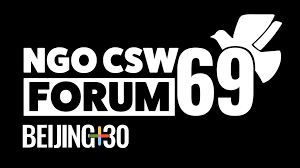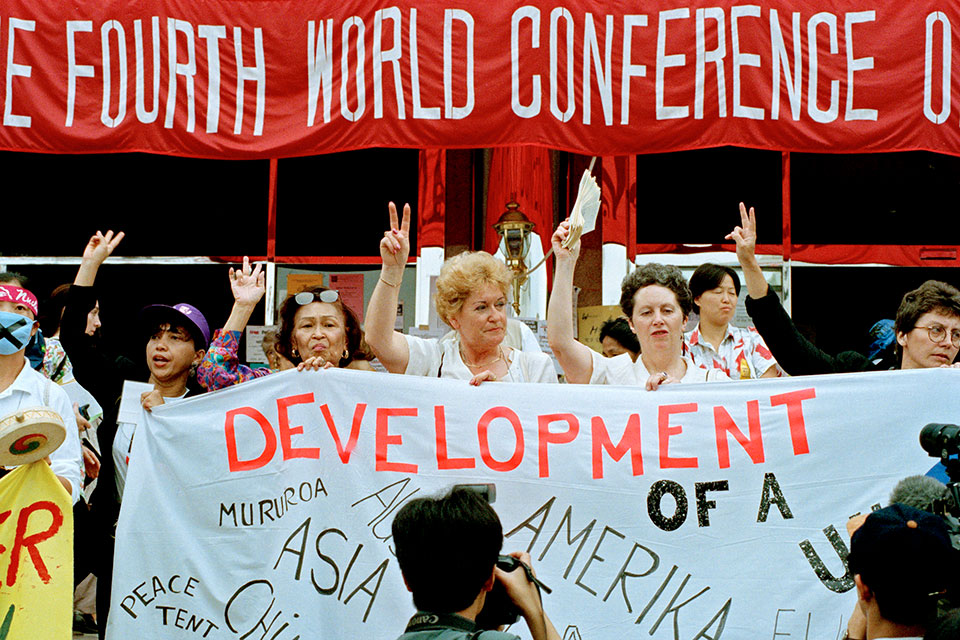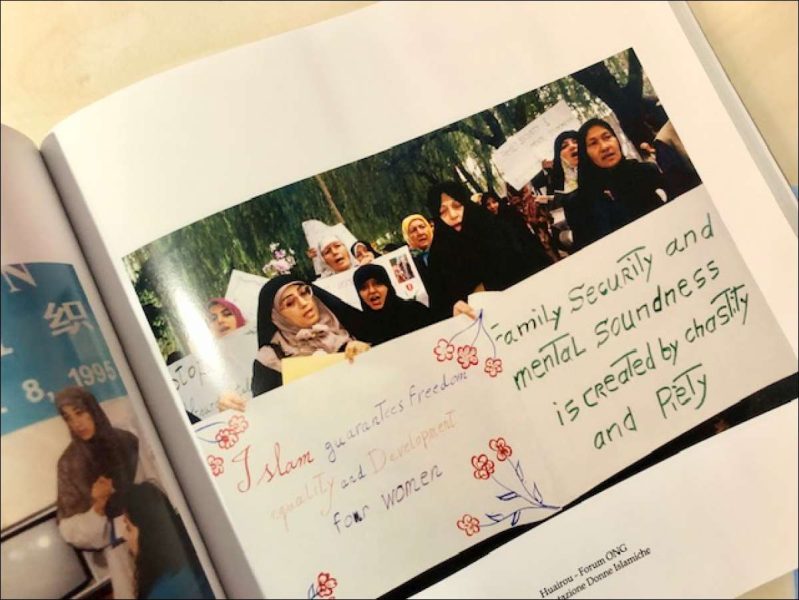CSW 69 – Beijing +30
Between Words and Politics: The Promises of the Past, the Challenges of the Present for Women's Rights
The association Free to Travel, with the founders Nicole Pizzolato, Martina Dal Pozzo and Lara Berthod, will be present at the CSW69 – Commission on the Status of Women at the United Nations in New York, from March 10th to 21stWe will participate as delegates of the association GRAIL, an international organization accredited to the UN. We will have access to panels and meetings with NGOs, institutions and associations, carrying out our work on safe and responsible mobility. Furthermore, we will actively participate as moderators and panelists in an event dedicated to the gender violence and mobility, contributing with data from our research and projects already underway.

the CSW: for women's rights
CSW69 (Commission on the Status of Women) is a landmark event in women's rights, not only because it is the world's leading platform for gender equality, but also because it marks 30 years since the 1995 Beijing Declaration. The Beijing Declaration established a fundamental framework for women's empowerment, setting ambitious goals in the economic, political and social spheres.
Despite the progress made, many gender issues remain unresolved. The wage gap, the low representation of women in institutions, gender-based violence and systemic discrimination continue to limit the full recognition of women's rights. In this context, CSW69 represents a key opportunity to outline new strategies and promote concrete commitments by governments and international organizations.
The CSW: A Sounding Board for Women's Rights
There Commission on the Status of Women (CSW) is a UN body created in 1946 with the aim of monitoring and promoting gender equality globally. Under the guidance of UN Women, the commission meets annually to assess progress made and to identify new challenges and corresponding policy strategies to respond to them.
The CSW represents a meeting point for governments, NGOs, activists and academic institutions, creating a space for international debate. It is an opportunity to discuss existing inequalities and to define a shared agenda of interventions. The participation of political representatives and civil society makes the CSW an essential platform for the development of effective public policies.
A strong point of CSW is being intersectional. In the various meetings, workshops and organized activities, the different forms of discrimination are considered, in which the complexity of belonging to ethnic minorities, having neurodivergences, coming from marginal educational or cultural environments come into play.
It is essential to raise awareness of the cultural, social and environmental differences that exist between different groups of women. All women still need to claim some rights even though they have more than in the past. Many women have fewer rights than others and the reasons are many and must be brought to light. Only a collective intersectional effort can ensure that rights, initiatives and legislation for equality are for truly collective equality and not that create new privileges with new inequalities.

Current challenges and concrete data in Italy
Despite international commitments, women's political participation in Italy has undergone a slow and fluctuating evolution. According to the dossier Women's participation in political and institutional life, in 2024 Italy achieved a score of 68.2 out of 100 in EIGE's Gender Equality Index, improving compared to previous years, but still below the EU average. The greatest progress is recorded in the area of power (+5.8 points), thanks to a greater female presence in institutions. However, women continue to be underrepresented in ministries and at the top of institutions.
The gender gap persists in many key areas:
- Wage gap: According to the latest data, women earn on average 13% less than men for the same role and responsibilities.
- Access to work and social security: In Italy, the female employment rate is still among the lowest in Europe and women receive pensions that are on average 30% lower than men.
- Gender-based violence: the phenomenon remains a global emergency, with alarming percentages of women victims of domestic and sexual violence.
- Political and institutional representation: Although the presence of women in parliaments has increased, it is still far from equal.
Between chambers and government, women represent 33.6% of the exponents present. 27.9% the strength of women based on the positions held in the institutions.
The INPS report highlights how the precariousness of female employment has direct consequences also on long-term economic security. The measures adopted so far have not been sufficient to bridge the existing gap and a more incisive commitment is needed to guarantee equal opportunities.

From Beijing
Gender equality and women's rights have come a long way since the 1995 Fourth World Conference on Women in Beijing marked a turning point in global policymaking. However, current challenges show that there is still a long way to go towards equality. The 1995 Beijing Conference produced the Action Platform, a document that has established key objectives for women's empowerment in various areas: economy, politics, education, health, media and human rights. Each year, the CSW assesses progress and challenges, serving as a barometer for gender policies around the world.
Giving voice to direct experiences is essential to understand the real impact of inequalities. A significant example is the testimony of an Italian woman who participated in the Beijing Conference in 1995. Her journey, which began on a train through Europe and Siberia, led her to take part in an event that brought together 30,000 women from all over the worldDuring our chat Pia says:
« I came back with two key words in my mind: GLOBALIZATION and EMPOWERMENT. I was just starting to become aware of globalization, which was fueled by the experience at the conference, where women from all over the world, from Mexico to the Pacific islands of Vanuatu, spoke about being exploited in their work and negatively impacted by globalization. I witnessed EMPOWERMENT from the many experts and organizers at the conference, it was a key word for everyone. It was then highlighted by the presence of women from all over the world gathered in Beijing. » Pia Zuccolin
The conference experience was a turning point for many activists, who understood the global scope of the struggle for women's rights. However, thirty years later, many of the issues discussed then are still relevant today. Stories like this demonstrate the importance of active participation and collective mobilization.
Global Perspectives and Local Actions
CSW69 aims to relaunch the gender equality agenda, urging governments to implement more effective policies. The hope is that discussions will lead to concrete and measurable commitments, avoiding promises remaining only on paper.
To ensure a more equitable future, continuous action involving not only institutions, but also civil society and the private sector is essential. The fight for women's rights is not only a question of justice, but a fundamental pillar for sustainable and inclusive development.
In this regard, I interviewed Montserrat Fregoso Fonseca, who has participated in the CSW several times since 2017. I leave you with her words and questions:
« My first time at CSW was as a participant, then I returned as a UN intern and then as a mentor for young participants.
What it taught me was that it is a kind of privilege to know that human rights exist.
What are we allowing ourselves to be as humanity? We must ask ourselves.
Sources:
https://www.openpolis.it/la-rilevanza-delle-donne-nel-governo-e-in-parlamento/
https://www.unwomen.org/en/csw/brief-history
Article by Chiara Gulino
Copyright © 2026 Libere di viaggiare | Powered by Libere di viaggiare